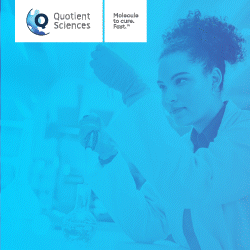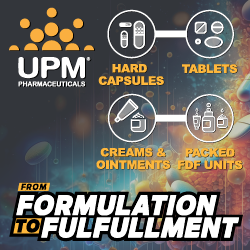ARCA biopharma Announces Enrollment of First International Patient in Phase 2b Clinical Trial Evaluating rNAPc2 as a Potential Treatment for COVID-19
ARCA biopharma, Inc. recently announced the first international patient has been enrolled in ASPEN-COVID-19, the Phase 2b clinical trial evaluating rNAPc2 as a potential treatment for patients hospitalized with COVID-19. The patient was enrolled in Brazil. ARCA also plans to enroll patients from Argentina and is currently enrolling patients at multiple sites in the United States. The international Phase 2b trial is approximately 75% enrolled as of this date. The company currently anticipates topline trial data in the fourth quarter of 2021.
“The expansion of ASPEN-COVID-19 to trial sites in South America and the enrollment of the first patient in Brazil add further momentum to rNAPc2’s clinical development focused on addressing the critical need for safe, efficacious treatments for hospitalized COVID-19 patients,” said Dr. Michael Bristow, ARCA’s President and Chief Executive Officer, who is also an American Heart Association (AHA) funded COVID-19 investigator. “With its combination of anticoagulant, anti-inflammatory, and potential antiviral effects, rNAPc2 may favorably impact clinical recovery of patients hospitalized with COVID-19, and thus has the potential to be a uniquely beneficial therapy for these patients, and possibly for other virus associated diseases as well. We look forward to working with the excellent investigators at our trial sites in Argentina and Brazil and, assuming enrollment continues to go well, to sharing the results of this important study in the fourth quarter.”
ASPEN-COVID-19 is a Phase 2b randomized, multi-center, international clinical trial evaluating two dose regimens of rNAPc2 versus heparin in approximately 160 hospitalized SARS-CoV-2 positive patients that also have an elevated D-dimer level. The primary endpoint of the trial is the change in D-dimer level from baseline to Day 8 relative to standard of care heparin. Other objectives of Phase 2b are to assess safety and determine the optimal dose regimen of rNAPc2 for Phase 3. D-dimer is a biomarker commonly used for assessing coagulation activation, which is elevated in approximately 40% to 75% of hospitalized COVID-19 patients and is directly associated with adverse clinical outcomes.
The US FDA has designated the investigation of rNAPc2 as a potential treatment for COVID-19 as a Fast Track development program. ARCA believes that rNAPc2 is the only anticoagulant class new chemical entity in development for COVID-19.
rNAPc2 is a small recombinant protein being developed as a potential treatment for RNA virus- associated diseases, initially focusing on COVID-19. rNAPc2 is a potent, selective inhibitor of tissue factor (TF), which has been identified as playing a central role in the inflammatory response to viral infections and in the process of viral dissemination. Its unique mechanism of action gives rNAPc2 a combination of anti-coagulant, anti-inflammatory and potential anti-viral properties, and therefore may be effective in addressing the impact of viral infections from multiple pathways. rNAPc2 has previously undergone Phase 1 and Phase 2 testing in more than 700 patients, including in clinical studies for prevention of venous and arterial thrombosis, where it showed efficacy in inhibiting the TF pathway and was well tolerated at therapeutic doses. Recent research suggests that the disease syndrome caused by coronavirus may have much in common with other severe infections in which the infection process causes inappropriate activation of the coagulation system and other aspects of the immune response, resulting in serious complications. Recent mechanistic discoveries, as well as prior data from studies in non-human primates (NHPs) given lethal doses of Ebola or Marburg filoviruses demonstrating morbidity and mortality reductions, decreases in inflammatory biomarkers and reduction in viral load, indicate that rNAPc2 may have important antiviral and anti-inflammatory activity in addition to its anticoagulant effects. The company believes that collectively these observations provide a strong rationale for investigating rNAPc2 as a treatment for COVID-19 and other virus associated diseases.
ARCA biopharma is dedicated to developing genetically targeted therapies for cardiovascular diseases through a precision medicine approach to drug development. ARCA is developing rNAPc2 as a potential treatment for diseases caused by RNA viruses, initially focusing on COVID-19. The US FDA has granted Fast Track designation to the rNAPc2 development program, currently in Phase 2 clinical testing. ARCA is also developing Gencaro (bucindolol hydrochloride), an investigational, pharmacologically unique beta-blocker and mild vasodilator, as a potential treatment for atrial fibrillation in heart failure patients. ARCA has identified common genetic variations that it believes predict individual patient response to Gencaro, giving it the potential to be the first genetically targeted AF prevention treatment. The US FDA has granted the Gencaro development program Fast Track designation and a Special Protocol Assessment (SPA) agreement. For more information, visit www.arcabio.com.
Total Page Views: 1930












